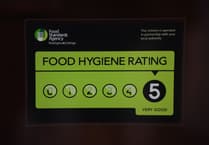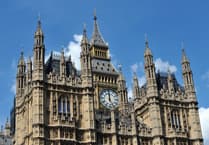COUNCILLORS are set to vote on whether to support calls to introduce a tourist tax for Bath.
Bath is one of the country’s most popular tourist destinations, attracting six million tourists per year. But they could soon have to pay a locally run “visitor charge” to stay in the city overnight — if the government lets Bath and North East Somerset Council charge one.
English councils do not yet have the power to introduce such a measure but councils in Scotland do and Wales is following suit. Now Bath and North East Somerset Council leader Kevin Guy has joined with the Cambridge City Council leader Cameron Holloway to write to local government secretary Angela Rayner urging the government to help “key heritage cities” with the “challenges” of tourism.
Liberal Democrat Cllr Guy said: “This is about making tourism work for everyone. We want to sustain the quality of the visitor experience while safeguarding the wellbeing of our communities. That means giving councils the tools to manage tourism in a way that reflects local needs and priorities.
“Having the sort of powers now being introduced in Scotland and Wales would allow us to reinvest directly into the services and infrastructure that make these visits possible. Any levy should apply fairly across all types of accommodation, including short-term lets such as Airbnb.”
The Liberal Democrat group has tabled a motion to go before Bath and North East Somerset Council’s full council meeting today (Thursday, July 17) to endorse the letter to the secretary of state and to call on the government “to give English councils the freedom and necessary powers to introduce locally administered visitor charges.”
The joint letter sent to Ms Rayner states: “Tourism significantly contributes to the local economy, providing jobs and supporting businesses. However, it also places a considerable strain on public services and infrastructure, including roads, waste management, and public transport.”
It adds: “A tourist levy associated with overnight stays (as found in Scotland and soon to be available in Wales) could provide Mayoral Combined and Local Authorities with an option to manage these costs effectively whilst continuing to support the growth of the UK’s visitor economy.
“The revenue generated could be reinvested into the community, improving facilities and services for both residents and visitors.”
The letter said that a tourist tax was not the only solution and urged the government to set up a roundtable discussion with destination cities on the issue.
Increasing social care costs outstripping council income to match is a situation faced by councils across the country. In 2023, Mr Guy warned that if the social care funding situation was not addressed, “it is only a matter of time before all local authorities in the United Kingdom go bankrupt.”
The tourist tax motion going before the council on Thursday notes: “Councils face long-term financial challenges, due to the decline in government grant funding and cost pressures, and have been encouraged to develop new sources of income.”





Comments
This article has no comments yet. Be the first to leave a comment.